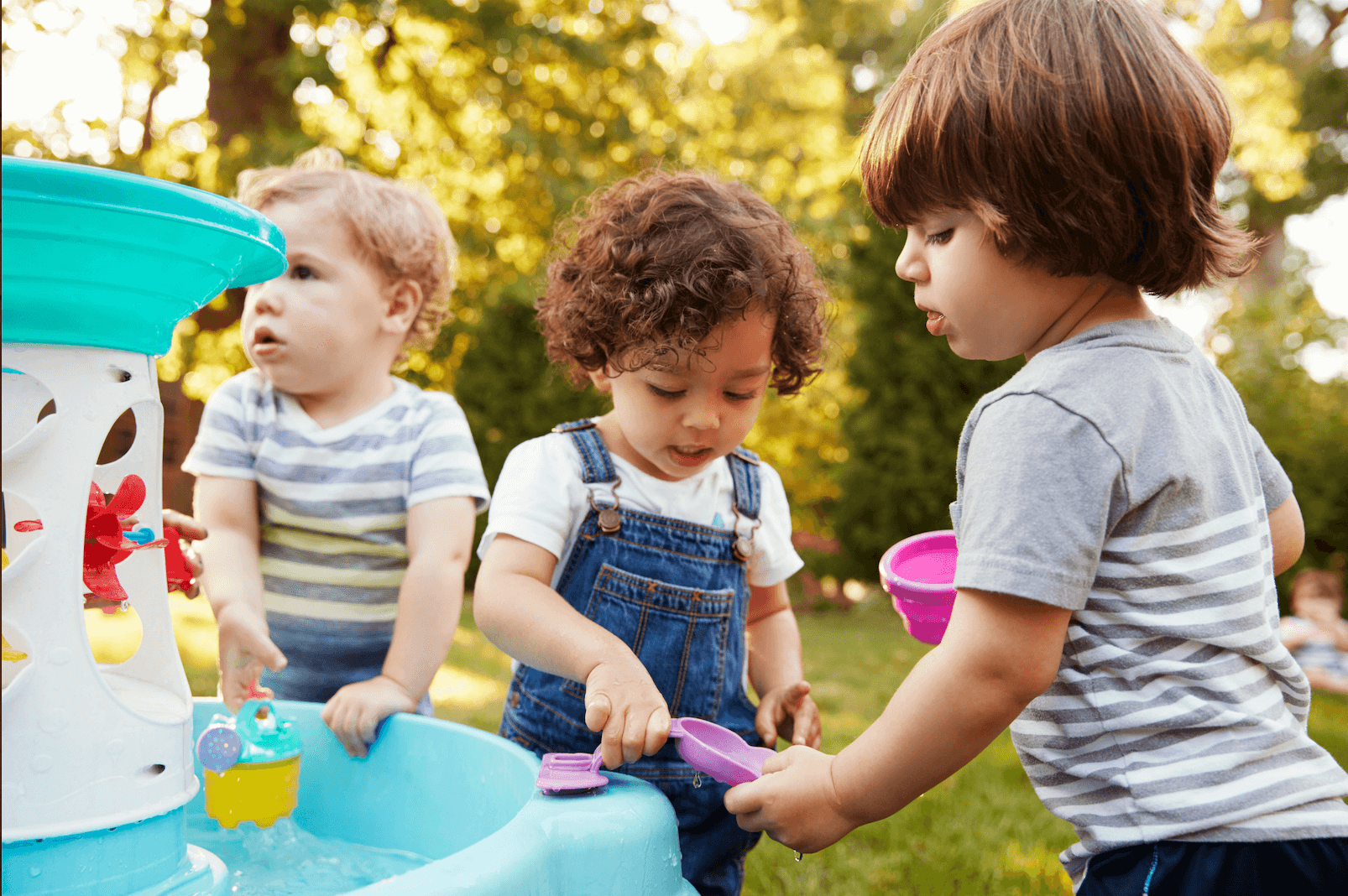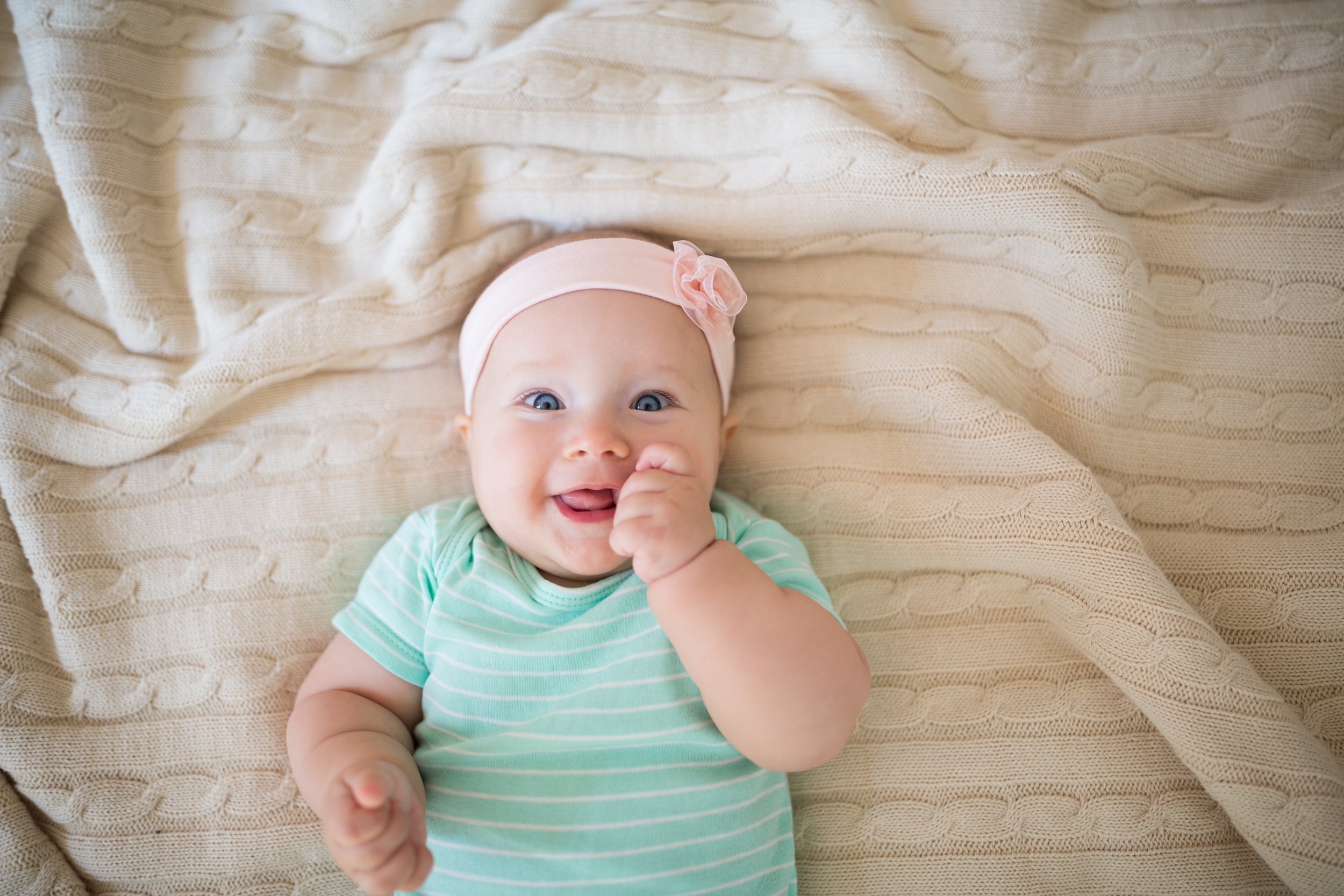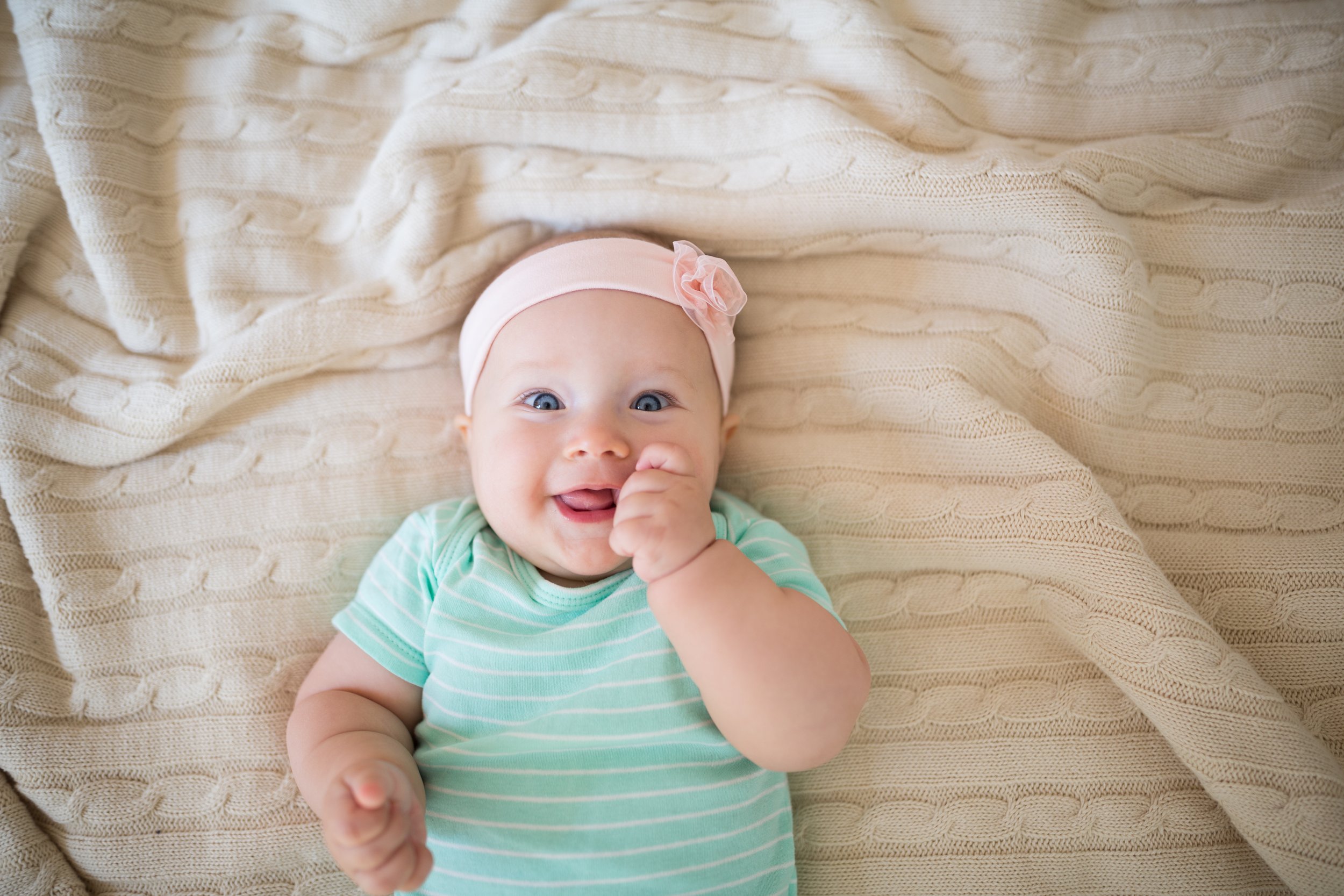6 Month Milestones
As my little one approaches the 6-month mark, I thought it would be fun to look into the research and refresh myself on the evidence-based milestones for 6-month-olds. These milestones for speech and language are particularly exciting as they lay the groundwork for some of the most memorable milestones, like saying their first words later on.
Watching your baby grow and change every day is such an incredible journey. While the newborn phase had its own set of wonders and challenges, reaching the 6-month milestone brings a new kind of excitement. At this stage, it’s all about curiosity and discovery. I love observing my son’s reactions and interactions as he starts to explore the world around him more actively. Each new sound, giggle, and expression feels like a tiny celebration of his development.
Let’s take a closer look at what you can expect and how you can support your baby’s growth during this exciting time.
6 Month Milestones Checklist:
Makes different vowel sounds, such as “oo” or “ah,” and sometimes combines vowel and consonant sounds, like “ga” or “um”
Giggles and laughs
Vocalizes (makes sounds) when playing or when putting things in their mouth
Blows raspberries
Reaches for something they want
Reacts to your facial expressions, whether serious or silly
Reacts to toys that make sounds, like those that play music
Looks at objects and watches them as they move (such as a pet, car passing by, ball bouncing, etc.)
Activities for 6 Month Milestones: Speech & Language
If you're at home working on these 6-month milestones with your little one, here are some of my favorite activities.
Mirror Play: Standing in front of a mirror, making silly faces, smiling, and blowing raspberries can be a fantastic way to engage your baby in fun interactions that promote learning. My son loves being held all day long, so mirror play is a great way to keep him entertained. As he watches me blow raspberries or make different sounds in the mirror, he's learning how I move my mouth to vocalize. This knowledge will help him as he begins to babble in a few months. For now, it’s thrilling when he smiles back, tries to blow raspberries, or engages in back-and-forth sounds with me.
Cruiser Adventures: Gone are the days of lying on the floor contentedly. My son now wants to be on the move, and it can be frustrating for him when he can’t move as he wants. Our stand-up cruiser is perfect for this stage, giving him a different vantage point and some mobility. We love moving the chairs away from the kitchen table and playing "Peek-A-Boo" or hide and seek under the table. He giggles and laughs as I pop in and out of view. He enjoys when I make silly faces, and he will stand in his cruiser and watch me as I feed the dog, vacuum, or do other chores. He also scoots around and reaches for cabinet handles or kitchen towels. I comment on what he’s doing and he listens, which is a great opportunity for him to learn the meaning of words from me. (**Keep in mind, some baby-proofing is required to ensure your baby has a safe place to explore)
Watching Traffic: This simple activity is a go-to on days when I don't have a lot of energy. We sit on a neighborhood bench and watch cars drive by. We often see walkers and their dogs or other kids riding scooters or bikes. My son tracks the cars and people as they pass and often vocalizes or calls out when he sees a dog. Depending on the day (and my energy level), I may comment on what or who I see passing by, imitate his sounds, or let other people come to say hi, often waving, which is another great skill that babies learn a little later on.
Cause/Effect Toys: Now that holding toys is easier, my son has fallen in love with a particular music toy that has a large button he often presses, sometimes by mistake. He’s fascinated by how it lights up and plays music. While some speech therapists might not prefer toys that make sounds, I find them invaluable. They teach him about cause and effect, and he often makes sounds himself as the toy plays music or he’s busy chewing on it. These noisy toys particularly excite him, prompting a lot of vocalizations during play. I make a point to comment on our actions with the toys, like “pushing” the button or “shaking” them, adding another layer of learning and interaction. I also sing along to the songs, and he loves watching me as I sing, which is great for his speech and language development.
This post contains affiliate links. As an Amazon Associate, Toddler Talk earns from qualifying purchases. Proceeds help support these resources.
I’ve linked a few of our favorite toys, just in case you’re interested. All together, we keep it pretty basic!
Written By: Stephanie Hatleli, MS CCC-SLP
Citations:
Capute, A. J., Palmer, F. B., Shapiro, B. K., Wachtel, R. C., Schmidt, S., & Ross, A. (1986). Clinical linguistic and auditory milestone scale: Prediction of cognition in infancy. Developmental Medicine & Child Neurology, 28(6), 762-771.
Cantle Moore, R., & Colyvas, K. (2018). The Infant Monitor of vocal Production (IMP) normative study: Important foundations. Deafness & Education International, 20(3-4), 228-244.
Coplan, J., Gleason, J. R., Ryan, R., Burke, M. G., & Williams, M. L. (1982). Validation of an early language milestone scale in a high-risk population. Pediatrics, 70(5), 677-683.
Sheldrick, R. C., Schlichting, L. E., Berger, B., Clyne, A., Ni, P., Perrin, E. C., & Vivier, P. M. (2019). Establishing new norms for developmental milestones. Pediatrics, 144(6).
Stark, R. E., Bernstein, L. E., & Demorest, M. E. (1993). Vocal communication in the first 18 months of life. Journal of Speech, Language, and Hearing Research, 36(3), 548-558.
This blog post contains Amazon Affiliate links, which help support our free online resources!
More From the Blog:
© 2020-2025. Stephanie Keffer Hatleli, MS CCC-SLP. All Rights Reserved.
The content offered on ToddlerTalk.com is for informational purposes only. Toddler Talk is not engaged in rendering professional advice, whether medical or otherwise, to individual users or their children or families. No content on this site, regardless of date, should ever be used as a substitute for direct medical advice from your doctor, speech-language pathologist, or other health professional. By accessing the content on ToddlerTalk.com, you acknowledge and agree that you are accepting responsibility for your child’s health and well-being. In return for providing you with information related to home speech and language practice, you waive any claims that you or your child may have as a result of utilizing the content on ToddlerTalk.com.











Explore language tips for potty training tailored to your child's communication stage. From toddlers who are just beginning to talk to children speaking in sentences, learn how to use gestures, sign language, storytelling, and consistency to support your potty training journey.